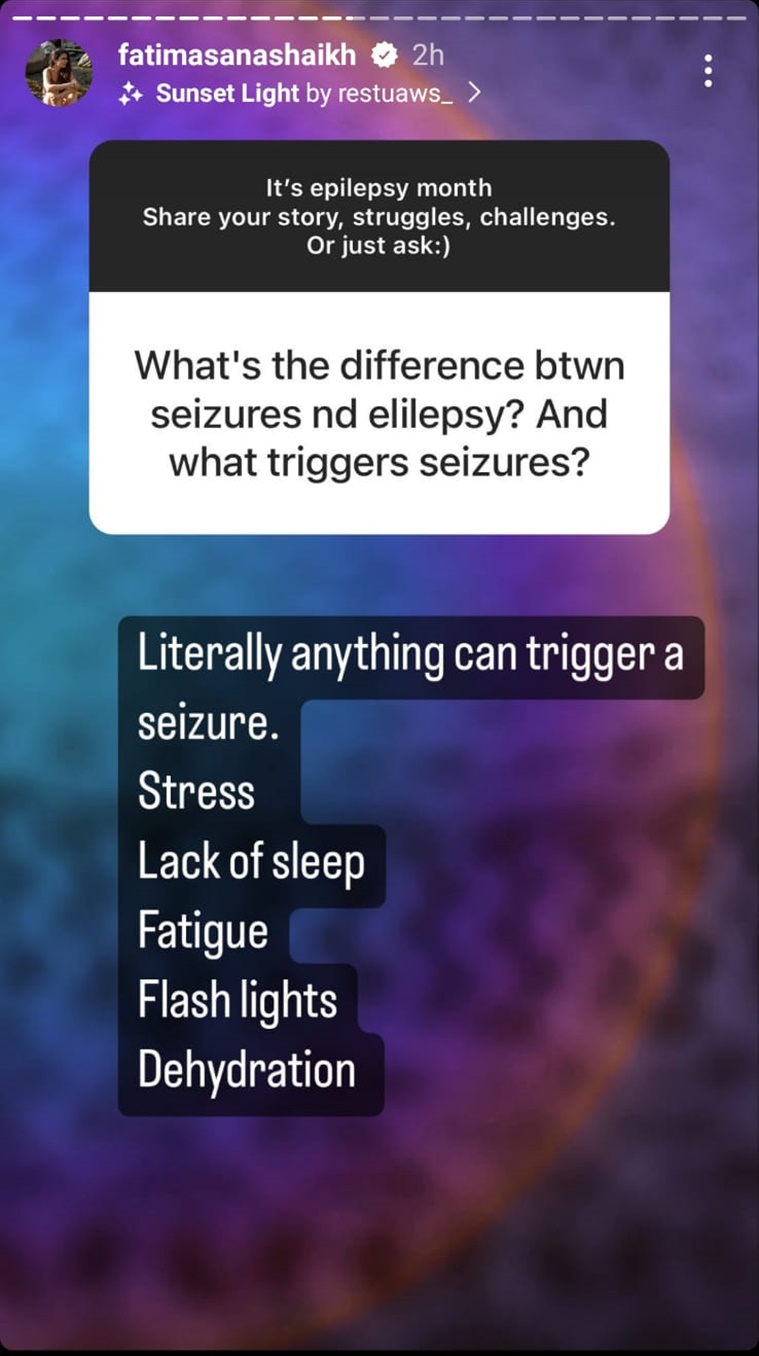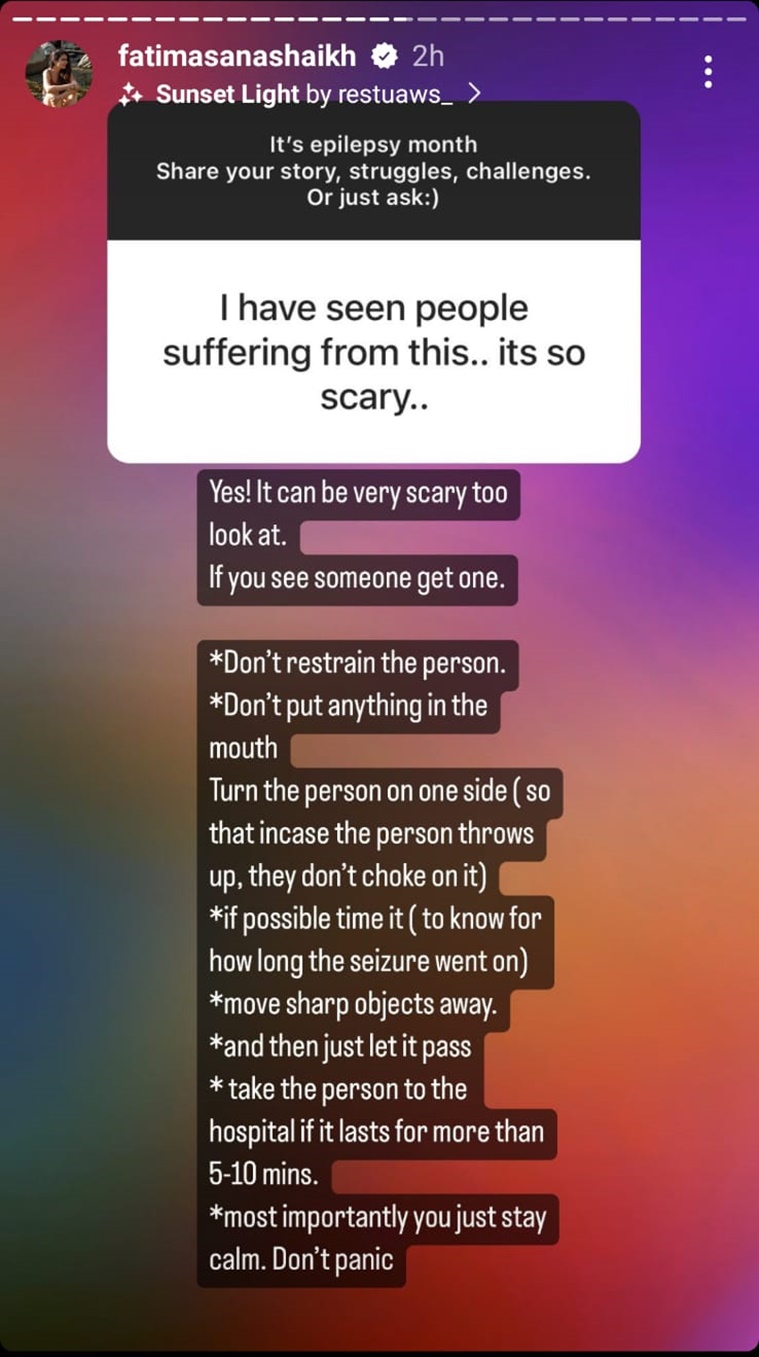Fatima Sana Shaikh opens up about living with epilepsy: ‘I inform all the directors I work with…’
One of her followers asked Fatima about when she found out about it, and the actor wrote: “I was diagnosed when I was training for Dangal.”

It takes a lot of strength to be a public figure and talk about living with something that is often stigmatised around the world. But, Fatima Sana Shaikh wants to raise awareness about epilepsy. Given that Epilepsy Awareness Month is going on, the actor took to Instagram to shine light on this condition and share with her 3.1 million followers how she has been coping thus far.
In an ask-me-anything session, the ‘Dangal‘ star engaged in a conversation with her followers. When someone asked how she deals with epilepsy, Fatima wrote that she has a “good support system” comprising her family, friends and pet, and that “some days are good”, but some are “not so great”.

For the uninitiated, epilepsy is a neurological disorder of the central nervous system, in which the brain activity often becomes abnormal and causes seizures or periods of “unusual behaviour”, along with sensations and loss of awareness. According to the World Health Organization (WHO), around 50 million people worldwide have epilepsy, making it one of the most common neurological diseases globally.
One of her followers asked Fatima, 30, about when she found out about it, and the actor wrote: “[I] was diagnosed when I was training for Dangal. I got an episode and woke up straight at the hospital… [I] was in denial first [for five years]. And now, I have learnt to embrace it, and work and live around it.”
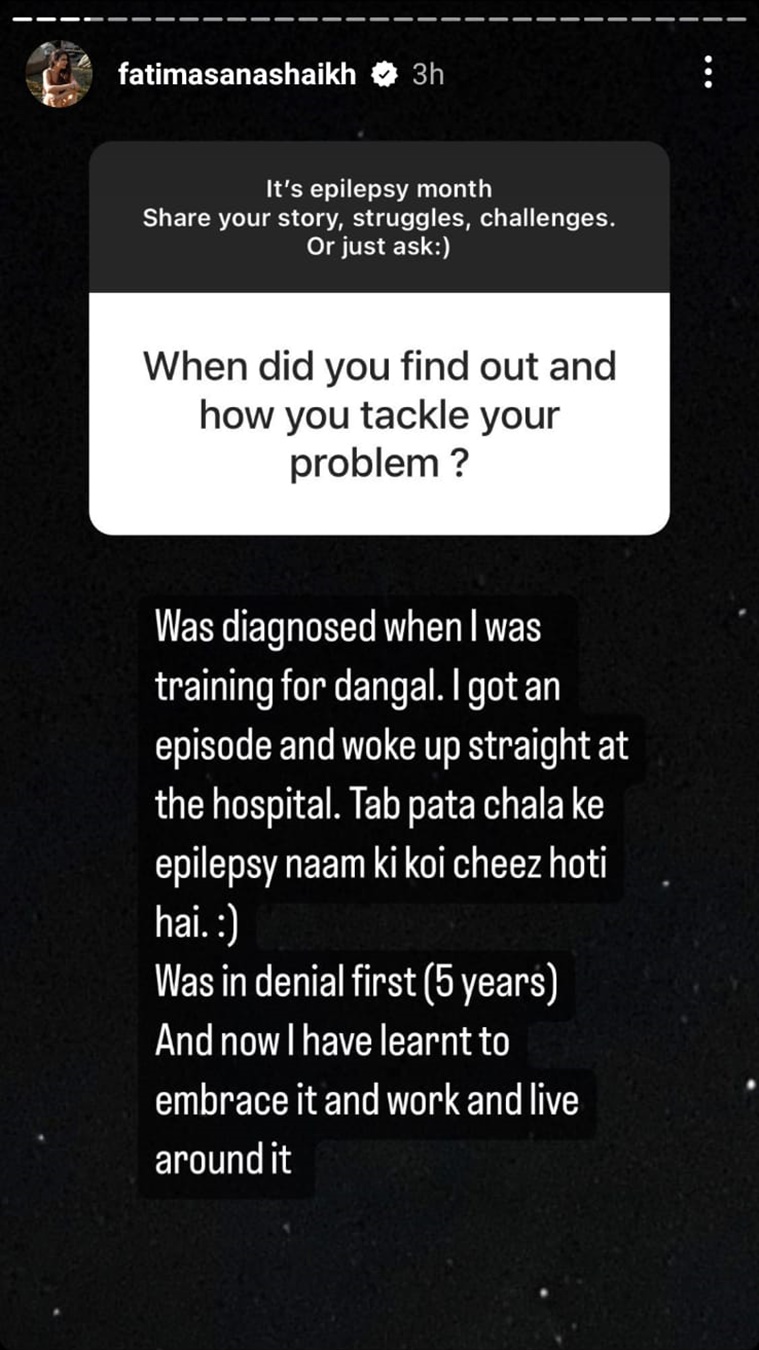
For the correct diagnosis of epilepsy, it is important that the patient seeks consultation from a neurologist, who makes diagnosis based on clinical evaluation of the patient (symptoms/signs), EEG (electroencephalogram) that detects brain waves, and MRI scan of patient’s brain.
Someone else asked the actor what one can do when they are alone and having an epileptic episode. She responded: “If he is getting an episode and no one is around him, you can do nothing. But, once you come to know and you are around him, just let him feel safe. He might be confused, emotionally/physically drained, and hopefully not injured. All we want is someone to be by our side.”
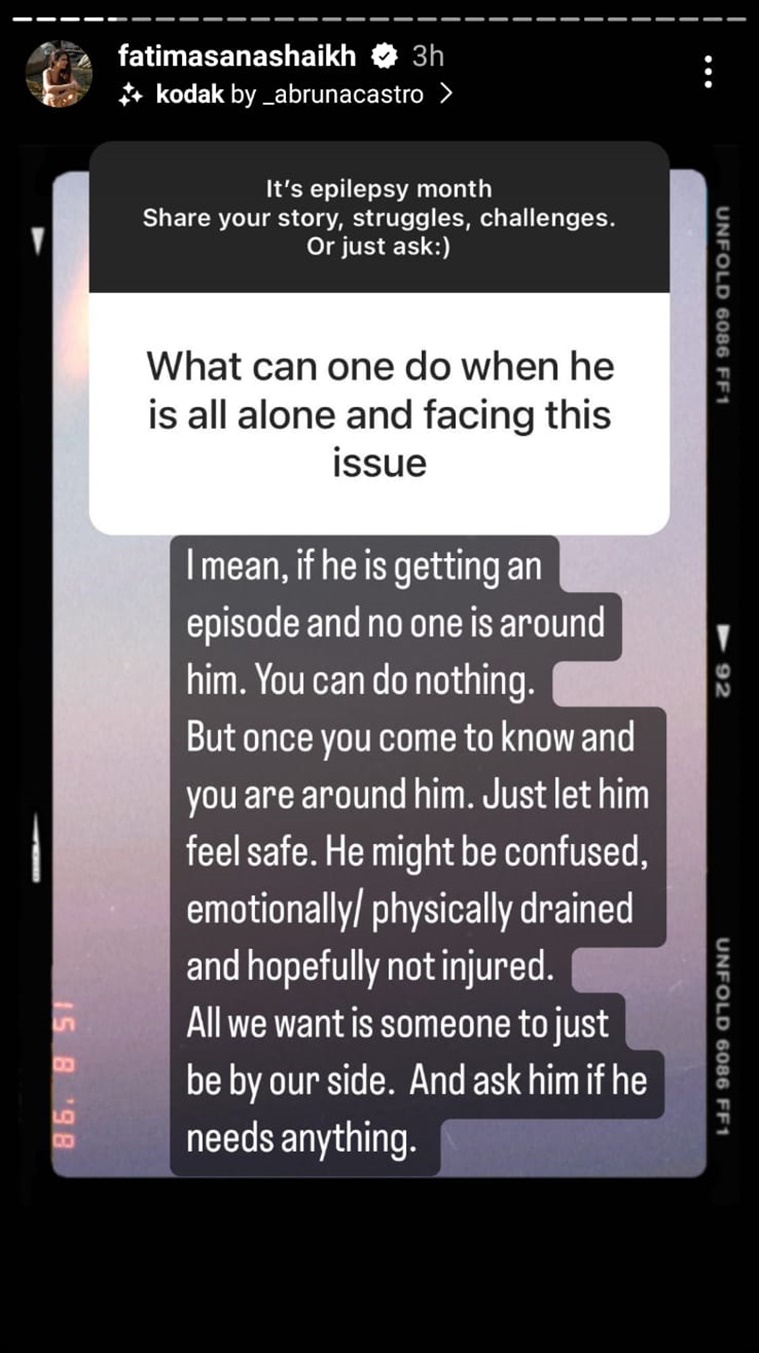
Fatima also wrote that the struggles are “serious and disabling”. “It’s not all in the mind. It can be fatal and leave you with major disabilities.
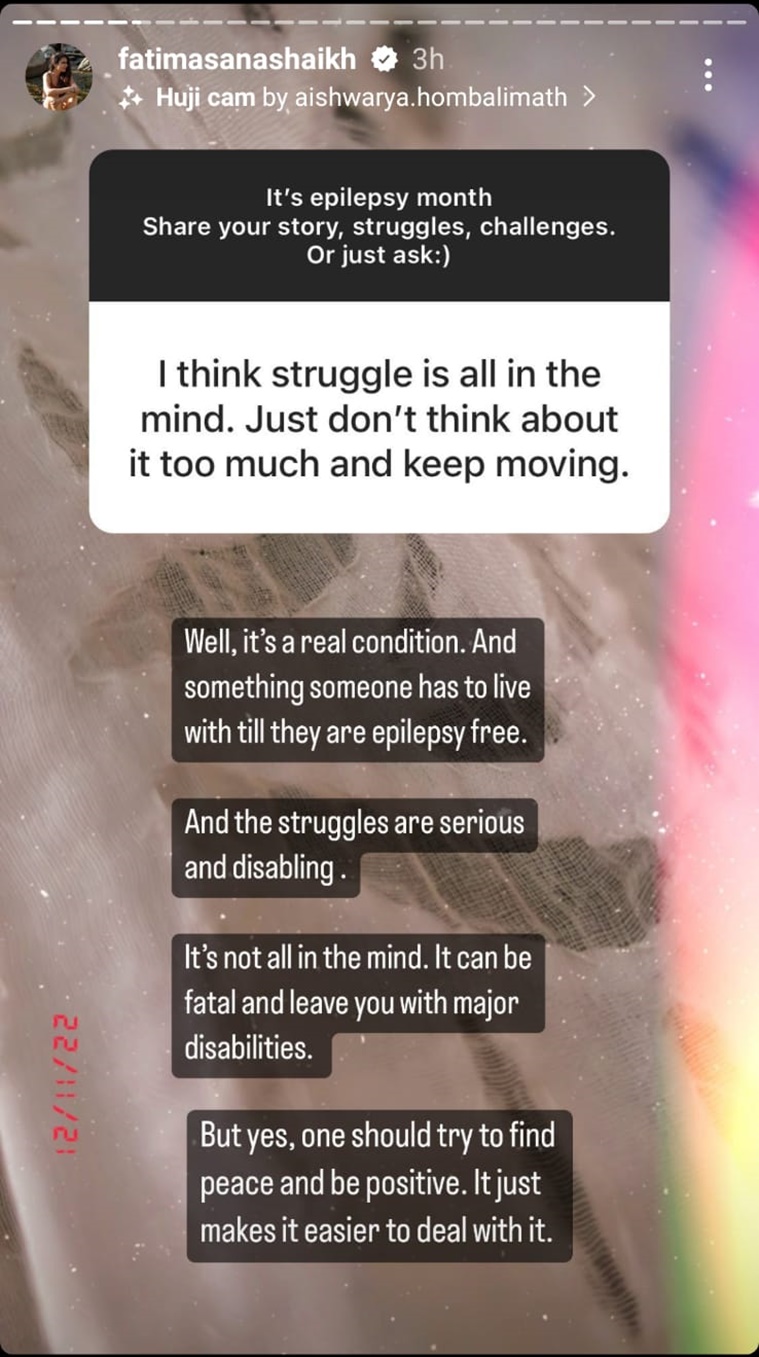
Speaking about how she has been working with this condition, the actor wrote that she informs all her directors that she has epilepsy. “They have always been very supportive and understanding. They know of the challenges they might face on the days I get an episode.”
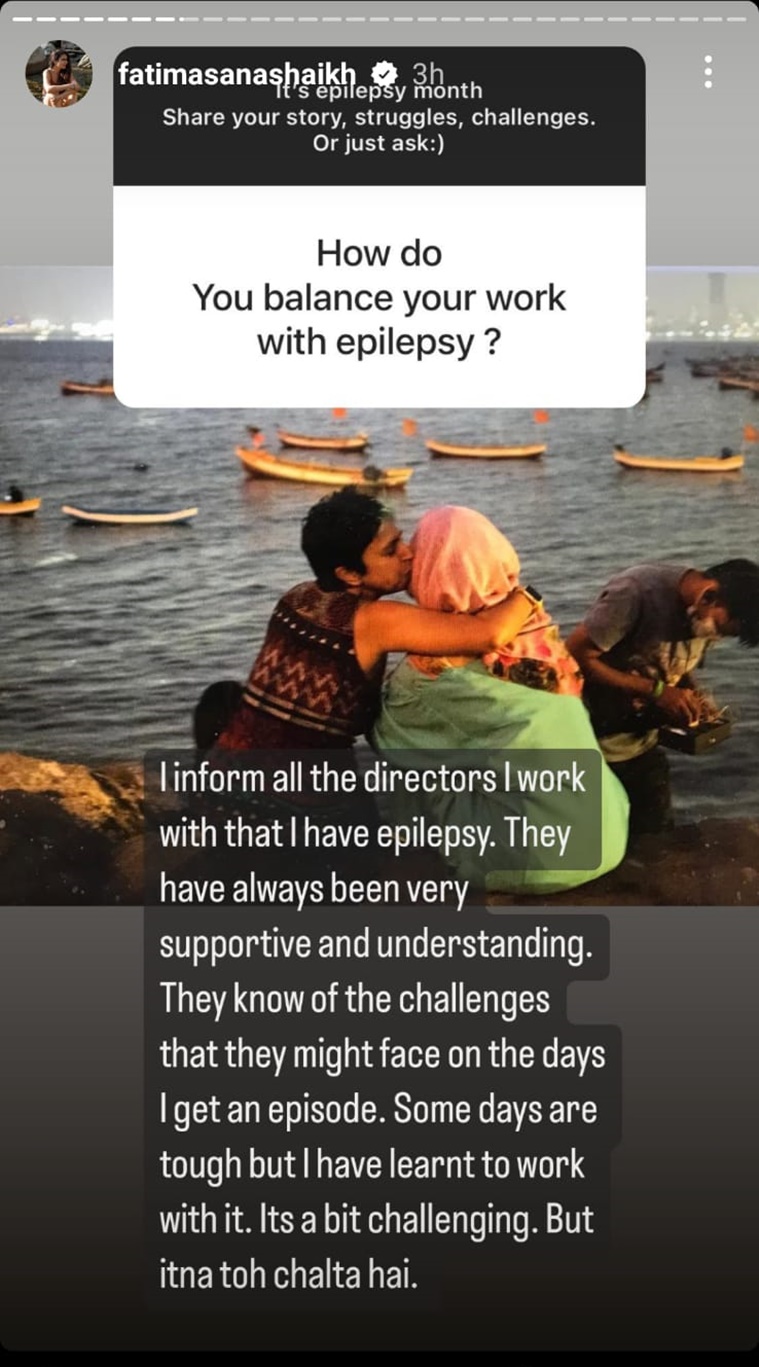
Fatima also shared that thinking about an episode recurring makes her “horribly anxious”, especially when she is “at work”.
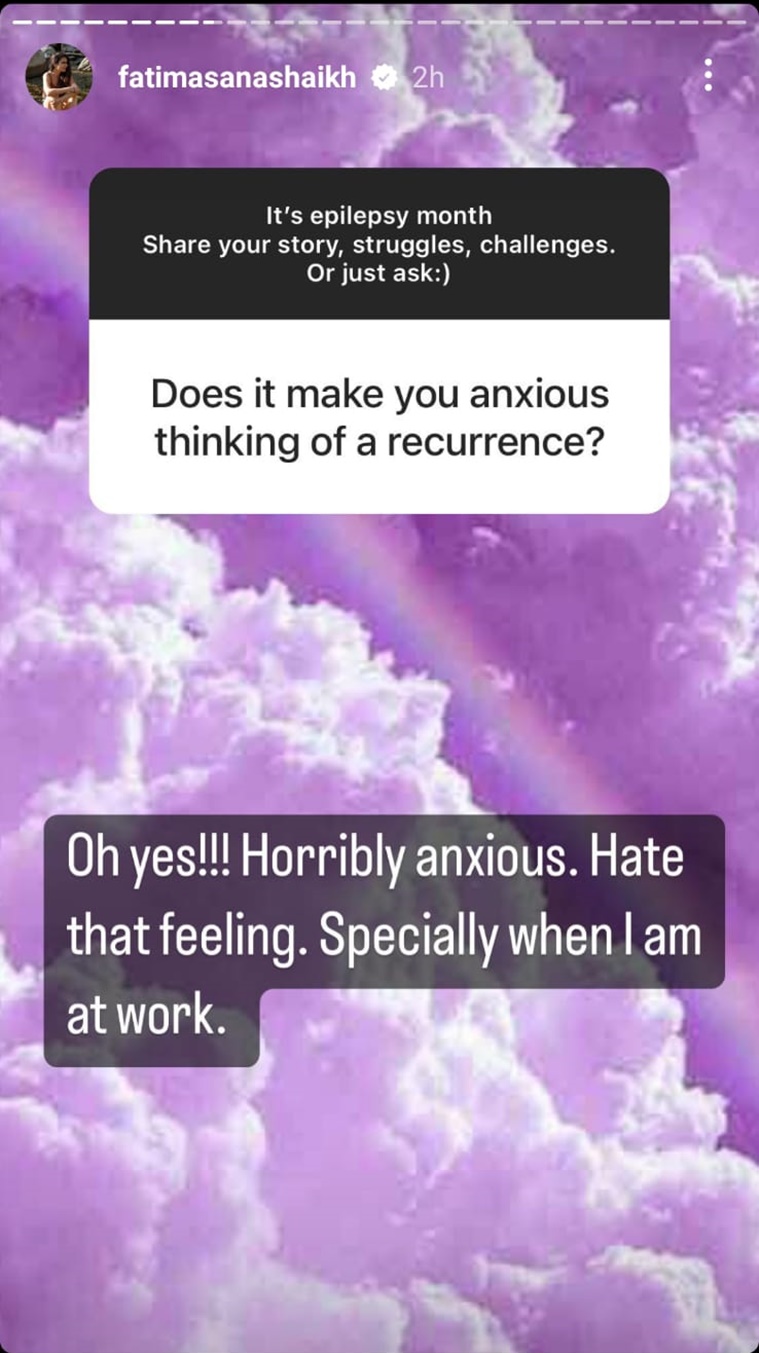
Next, she revealed that her epilepsy prevents her from doing activities like swimming, driving and being alone.
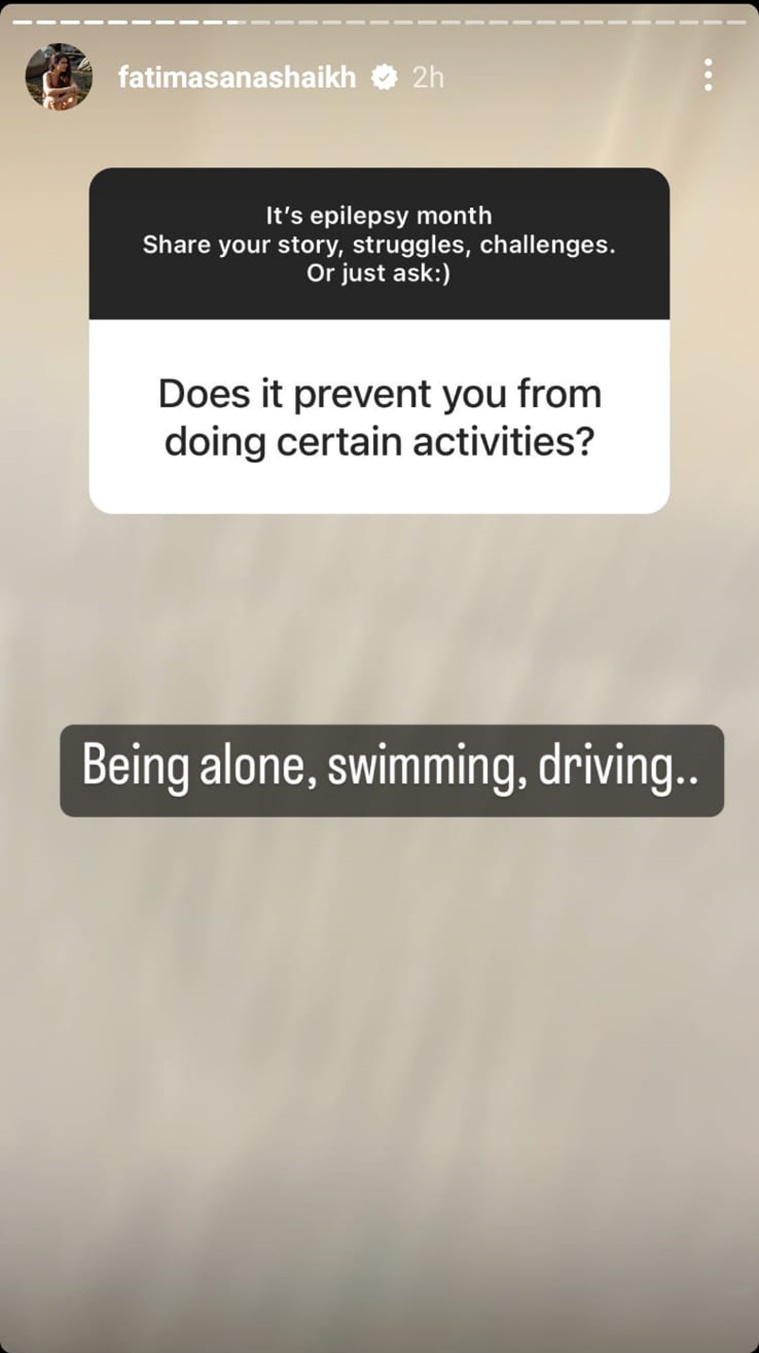
She said she suffers from tonic-clonic seizure — which is also called a convulsion — absence seizure — which leads to sudden lapses of consciousness — clonic seizure — wherein there is repeated jerking of arms and legs on one or both sides, along with numbness or tingling — and focal seizure that begin in one area of the brain, but can become generalised and spread to other areas.
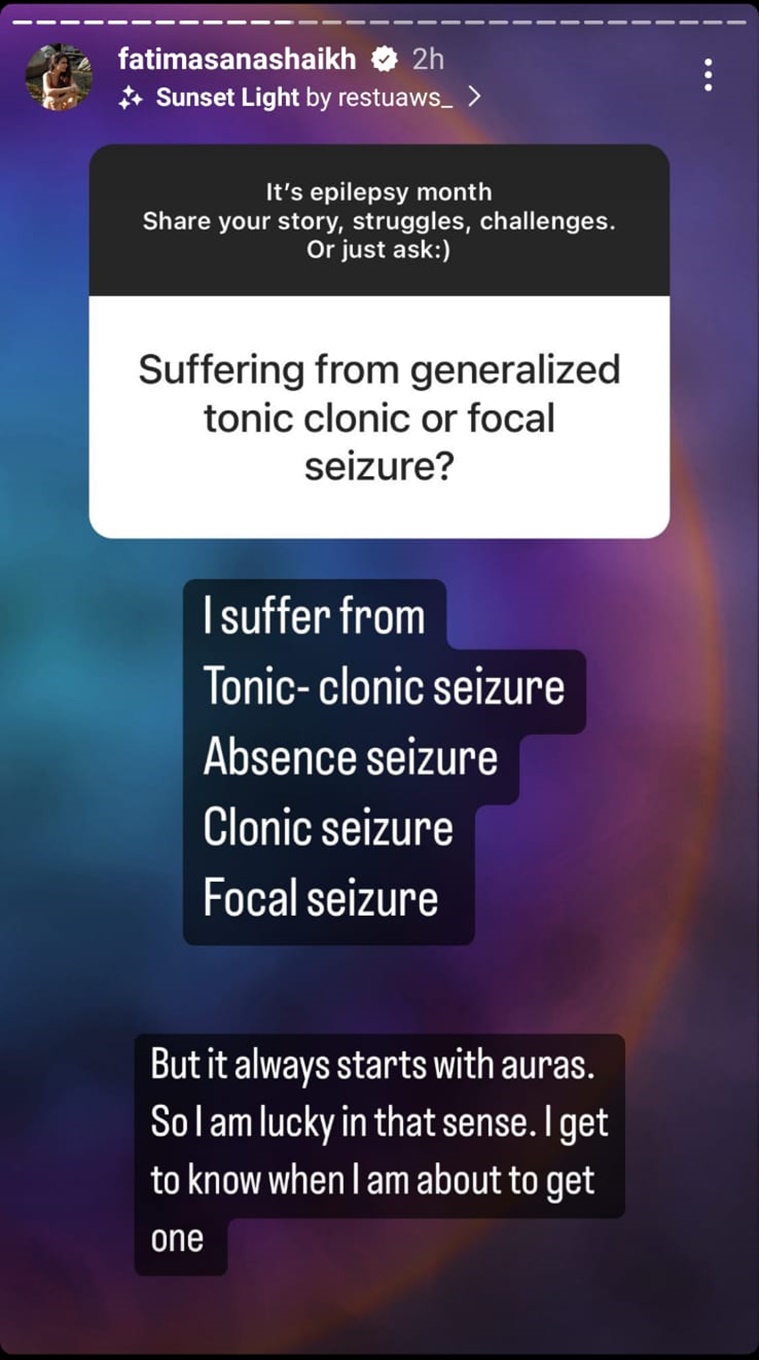
On what can trigger a seizure, the actor said stress, lack of sleep, fatigue, flashlights, dehydration are factors.
